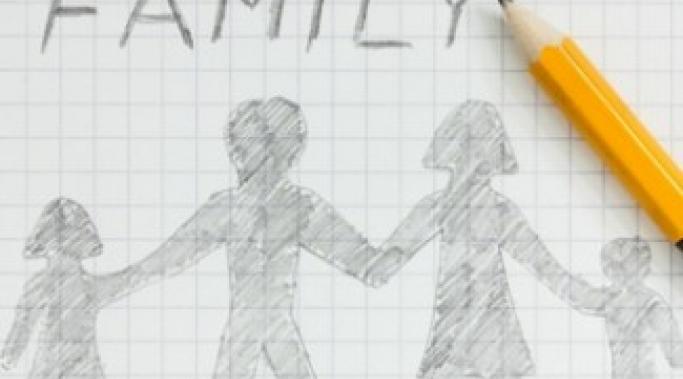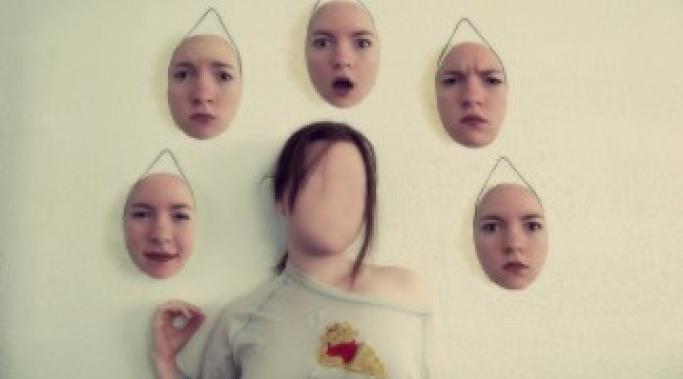Blogs
Before the new year begins, every mom needs to hear these simple words to preserve her sanity: good job. "Good job" may seem simple and a bit trite, but Christmas has a way of leaving mentally ill mamas strung out, exhausted, and defeated (Stressed Out! Stress, Mental Health, and Our Sense of Control). After all of the efforts spent making Christmas magical for everyone else, the house is a big old mess, the kids are exhausted, and daddy's gone back to work. Mama's left, again, to put it all back together, take down the decorations, and get the family ready for a brand spankin' new year. It all seems a bit impossible. So Mama, before you start undecorating, washing dishes, and folding another load of Christmas pajamas, hear me out. Let's talk about what every mom, mentally ill or not, needs to hear before the new year begins.
Happiness habits matter because living a blissful life, to some degree, is a choice. Choosing happiness habits matter to that choice. Even if you live with a chronic mental health disorder, you can choose to nurture practices that create happiness in your life. Make 2017 the year you kick start your happiness habit to build your bliss.
Saying mental illness and acceptance in the same breath might seem like an awful idea at first, but accepting your mental health condition can actually be a key player in removing, or at the very least alleviating, the stigma you face (Why It’s Hard to Accept a Diagnosis of a Mental Disorder). Personally speaking, accepting my mental illnesses for what they are helped both the self-stigma and external stigma I felt.
When you are living with a mental illness like posttraumatic stress disorder, setting and working toward specific goals is sometimes challenging. As someone who has posttraumatic stress disorder (PTSD), I know that there are times when my PTSD symptoms are worse than others and those times are often hard to predict. So when I set goals with PTSD, regarding either my recovery or other aspects of life, I try to keep in mind that I may have more to deal with than others who don't suffer from a mental illness (How to Build Confidence and Achieve Your Goals).
My therapist will be taking a leave of absence for most of January due to major surgery. We spent the last session planning what to do since we won't be meeting for about a month. I have other people on my treatment team I can check in with, but not everyone is so fortunate. This made me realize it might be a good idea to write about how to deal with a therapist's absence.
Just as anxiety can happen at any time in life, it’s possible to conquer anxiety at any time by using the stages of development. The previous two articles explored the fact that all human beings progress through distinct developmental stages, each with its own tasks and risks of failure and anxiety (Anxiety Can Happen at Any Age: Child and Teen Anxiety; Anxiety in the Adult Years: Anxiety Can Happen at Any Age). By understanding what our main developmental tasks are, we can use those stages of development to conquer anxiety at any time in life.
While it can be challenging there are ways to avoid bipolar mood episodes over the holidays, or minimize them at least (Why Bipolar Mood Instability Happens During the Holidays). These techniques are often the ones we use during the year but we forget about them at the holidays. Learn more about how to avoid bipolar mood episodes over the holidays.
A dissociative identity disorder (DID) diagnosis doesn't always come as a surprise. You start out by ignoring DID signs and symptoms, until they can no longer be ignored. So you start searching online, and find out many of your symptoms fit with dissociation, and this disorder called DID. It can be overwhelming and confusing. So what should you do if you think you have dissociative identity disorder?
Some with depression and anxiety drop out of college (How Can Colleges Help Students with Mental Illness?). I graduated from high school at 17 and was ready to tear through my freshman year of college. Instead, I dropped out of college with depression and anxiety. What followed were eight years of insecurity and an intense dread for the future.
Many people can find enjoying the holidays challenging, but for those with bipolar disorder, the holidays can also cause bipolar mood instability. This is a special challenge over and above what the average person faces. While average people may worry about seeing a brother who hates them or an alcoholic aunt who is a mess, people with bipolar disorder risk a bipolar relapse. Here are some of the reasons why the holidays cause bipolar mood instability for those with bipolar disorder.









